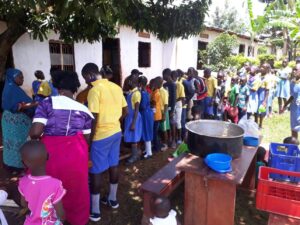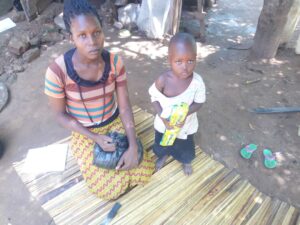QUOTATION
“When God created the world, he saw that someone could not manage his work. And he created Adam. The Garden of Eden was not enough for Adam. He lacked someone like him. And God created Eve. God blessed them and said to them, “Grow and multiply and fill the earth!”(Cf. Gen 1-2) The value of sons in the land of Africa. The foundation remains God the Creator, who wanted man and woman to be His co-workers in generating and transmitting life. To be parenting is to have children. It is like a plant: it exists to bear fruit. To have children is to obey the law of LIFE, to fulfill God’s Will.
STEREOTYPES FROM THE WEST
It is necessary, however, to provide clarity. Not surprisingly, most books on African parenting come from the Western world. And right now, African parenting values are being forgotten for “well-established” Western practices—the stereotypical image of the super mom-the woman who effortlessly manages everything on her own-does parents no favors. In Western eyes, the African version of this is the village woman with a child strapped on her back, balancing a pot of water on her head as she walks home. Yet, this is not the complete picture.
WHAT IT MEANS TO BE PARENTS
In particular, Africans, who have not fully experienced the indigenous culture, believe that cultural awareness makes them primitive. No one has ever told them about the beauty of their fathers’ indigenous parenting. Parenting in Africa means making sacrifices. A typical African parent is willing to give whatever it takes to ensure their children get opportunities their parents never had. It is about making sure that children do much better than their parents. When you think about African parenting styles, a common thread connects all families.
VALUES TRANSMITTED
African parents teach their children to obey them, their teachers, society, and God. Do good, keep your hands clean, and let the forces of the earth fight your battle for you. African parents do not encourage violence; they teach their children that every life is precious, whether it is your friend or enemy. African parents may not have the same opportunities as parents in other parts of the world, but they sacrifice so much to give their children rare and incredible opportunities.
EXTENDED FAMILY
Sometimes we approach parenting tired and overwhelmed. Many African societies understand this and have built ways for parents to share this enormous responsibility in their systems. Even today, it is common for children to live with families that are not their immediate birth families for periods. This culture of help can require a certain humility. If assistance is offered, it is worth taking. Children learn a great deal from exposure to different ways of doing things.
FOLKTALES
Folktales promote good parenting in young people. For example, in parts of southern Nigeria, the “turtle” is mainly used in folk tales to represent acts of greed, wisdom, pride, and rebellion. The stories rarely ended with the words, “and they lived happily ever after.” Usually, they taught a lesson. And most of the time, the selfish person (the turtle) learns the lesson the hard way.
PAST AND PRESENT
Over the years, traditional African parenting has gone through the influence of modernization, which is not bad. Still, some of its rich parenting values are never seen again. Africa has a rich culture, and some traditional parenting values are still used today. This should not be overlooked because it makes us who we are. Sheikh Zayed Al Nahyan says it best, “He who does not know his past cannot make the best of his present and future, for it is from the past that we learn.”







